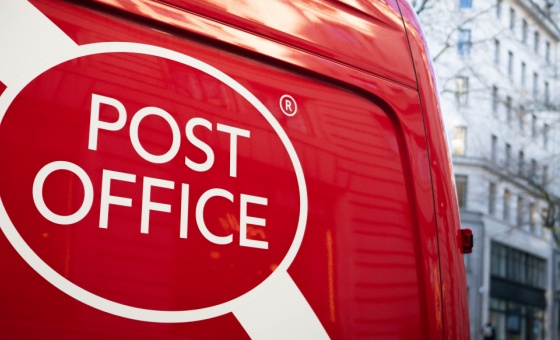This is the last article you can read this month
You can read more article this month
You can read more articles this month
Sorry your limit is up for this month
Reset on:
Please help support the Morning Star by subscribing here
MY NAME is Ocean Hyland. I am 22 years old and I am a member of the Tsleil Waututh First Nation, located over 5,000 miles from Britain in what you know as Vancouver, British Columbia, Canada. Tsleil-Waututh means “People of the Inlet” — located on the Pacific coastline of British Columbia, now known as Burrard Inlet, in the heart of Vancouver.
The inlet was historically the source of 90 per cent of our protein; my ancestors used to say: “When the tide goes out, the table is set.” The inlet was our guarantee of food sovereignty. Three miles across the inlet is where the Westridge Marine terminal is located, where a new oil pipeline from the Alberta tar sands would bring oil to tankers queueing up in the inlet.
In 1972, shellfish consumption from the Inlet was banned, due to pollution from industrialisation. The Tsleil-Waututh Nation has been working hard to restore parts of the inlet and, just two years ago, I took part in the first clam harvest since 1972. It’s not easy harvesting clams. They can move quite fast, so you have to be quick and we were, by Tsleil-Waututh standards, pretty inexperienced clam harvesters. But we eventually collected enough for a community dinner to celebrate the People of the Inlet being fed by our inlet once again. Without the inlet, the Tsleil-Waututh will lose our identity.
The Tsleil-Waututh Nation has conducted an assessment of the planned oil pipeline, grounded in our unextinguished indigenous laws and backed by cutting-edge science. Based on this, we have withheld our free prior informed consent.
Building this pipeline will therefore violate the UN declaration on the rights of indigenous peoples. It also infringes on our aboriginal rights, guaranteed by the Canadian constitution. If built, the pipeline will increase tanker traffic in the inlet sevenfold, bringing with it increased risks of oil spills and pollution. It will also enable the expansion of the Alberta tar sands, which in turn will accelerate climate change.
The tar sands are a big expanse of bitumen-rich sands and sandstone in Alberta, central Canada. Given enough water, energy and chemicals, you can extract oil from them. In Alberta some of the world’s biggest toxic tailings ponds are located where flocks of migrating birds occasionally land and die. Huge oily deserts, where once there were forests, are now wastelands. If all of the oil in the Alberta tar sands is extracted and burned, it would use up 15 per cent of the entire world’s carbon budget, as set by the Paris Agreement.
And that is why many indigenous peoples and our allies will do whatever it takes to stop this.
The wave of resistance to tar sands pipelines has spread across Canada, where these pipelines are planned, and then across the oceans and around the world.
And we are not powerless. The provincial government of British Columbia was elected on a pledge to resist the pipeline which would end at our inlet. Many other First Nations, Canadians from all walks of life and environmentally conscious people around the world have made building this pipeline so difficult that Kinder Morgan, the Texan company building it, has pulled out in the face of such resistance.
Because of Kinder Morgan’s retreat, the Canadian federal government have had to take on its old assets and responsibility for moving the project forward.
Along with oceans of water, energy and toxic chemicals, the other ingredient needed to produce oil from tar sands, and bring it across a continent to the sea, is money. If the banks stopped lending them money, tar sands pipeline projects would be going nowhere.
Many people think that getting banks to stop lending is an impossible task, that the banks are an unstoppable force which follow money as night follows day. But BNP Paribas and ING won’t lend to tar sands pipelines. And HSBC won’t lend to tar sands pipelines. In fact, there is only one British bank that is still choosing to fund tar sands pipelines: Barclays.
You could argue about whether HSBC stopped offering funding because it wants to protect the climate, or just to protect its brand, but the environmental threat posed by tar sands pipelines caused the popular resistance, and the resistance caused the retreat of Kinder Morgan, HSBC and others.
So I’m asking Barclays not to offer any further funding to these dangerous proposed tar sands pipelines — now, here, in this piece of writing.
And on Friday, when I went to meet a Barclays executive in its global headquarters in London’s Canary Wharf. And the day before that, when I attended a Greenpeace protest at that HQ and their activists lent me a microphone and sound system while they climbed up to the bank’s logo and painted it black. And two months ago, when I went to Barclays’ AGM and told their shareholders some of what I’m telling you now.
And I’m asking you to help, and to ask them the same thing. In person, if you can, or by writing a letter, or signing a Greenpeace petition. Because even though we are a long, long way from winning, we’re getting closer every day, and it would be a sad thing if the People of the Inlet lost our food and our water and our home, and all we got in exchange was pollution.











